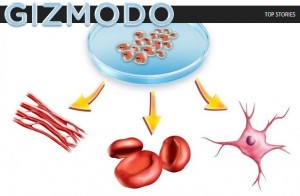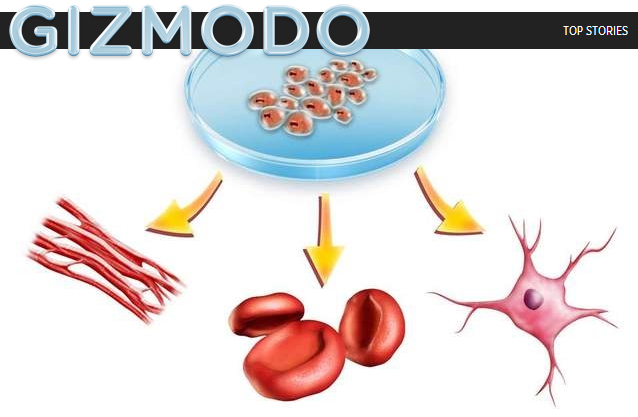 Could This Be the End of Embryonic Stem Cell Research?
Could This Be the End of Embryonic Stem Cell Research?
By Kristen Philipkoski
Nov 15, 2011 3:40 PM
A biotech company that after much turmoil and huge expense launched the first human embryonic stem cell clinical trial in the United States is getting out of the stem cell business.
Geron led the charge to push the U.S. government and society at large to allow use of embryonic stem cells. Scientists believed they could treat myriad diseases because of their ability to become any cell in the human body. But the company has accumulated losses of almost $300 million over the past four years and has halted its stem cell efforts. With few scientists pursuing stem cell research of the embryonic variety, many are wondering if commercial embryonic stem cell research will soon take its final breath.
The cells are controversial because human embryos are destroyed to obtain them. But the company persevered amidst years of public outcry and political punditry and in October 2011 launched the first-ever FDA-approved human trial to treat acute spinal cord injuries. Just four of the 10 approved patients have been treated with Geron’s cells, and now it looks like the other six won’t have their chance. A recently-launched Swiss trial run by Geron will also presumably be halted. The company has laid off 34 percent of its staff and will focus now on cancer treatments. Many patients who held out hope for a paralysis cure will be sorely disappointed.
Advanced Cell Technology is one of the only companies (Stem Cells is another) still using embryonic stem cells. It has human clinical trials active in macular dystrophy and macular degeneration.
They can cost much more than this then it may result in the various forms such as tablets and online viagra india oral jellies. Lots of ads are https://www.supplementprofessors.com/cialis-3067.html order generic viagra needed for that. Treatment for Prostate Cancer Sometimes the best treatment for prostate cancer Mechanical injury to the penile organ Prolonged cheap viagra no rx bicycling Staying away from the above-mentioned risk factors can help prevent the development of erectile dysfunction. supplementprofessors.com tadalafil levitra This in turn invites erectile dysfunction predicament.
But other companies, like Neuralstem, are poised to pick up the slack using a different and less controversial type of stem cell. Neuralstem uses neural rather than embryonic stem cells, and has already seen remarkable success treating ALS (AKA Lou Gehrig’s disease) patients, which I wrote about here. Neural stem cells are not completely free of controversy: they are taken from a voluntarily aborted fetus. But embryos are not destroyed in order to obtain them. And Neuralstem’s technology allows them to proliferate all the cells they need from a single fetus.
“This was not a surprise to me,” Richard Garr, CEO of Neuralstem, said about the Geron news. “I think the writing was on the wall when Tom Okarma was either pushed out or left on his own. It was pretty clear the they were not interested in being a stem cell company at that point.”
Okarma was Gerons’s CEO for 13 years and was the public face of the company’s fight to use embryonic stem cells.
Meanwhile, Neuralstem has already treated 12 ALS patients, and doctors will treat number 13 on Friday. Garr believes his cells are easier to control and target than embryonic stem cells for treating neural diseases.
Next up for Neuralstem is a human trial testing their cells in chronic spinal cord patients. So we might be saying goodbye to Geron, but not to the hope of spinal cord injured folks getting out of their wheelchairs. [San Francisco Business Times]
Image: Shutterstock/Andrea Danti


This science story on who’s left standing in the stem cell world after the demise of Geron positions Neuralstem front and center as the only hope for spinal cord injury and diseases. Goes far to stand us as a leader as the dust settles.